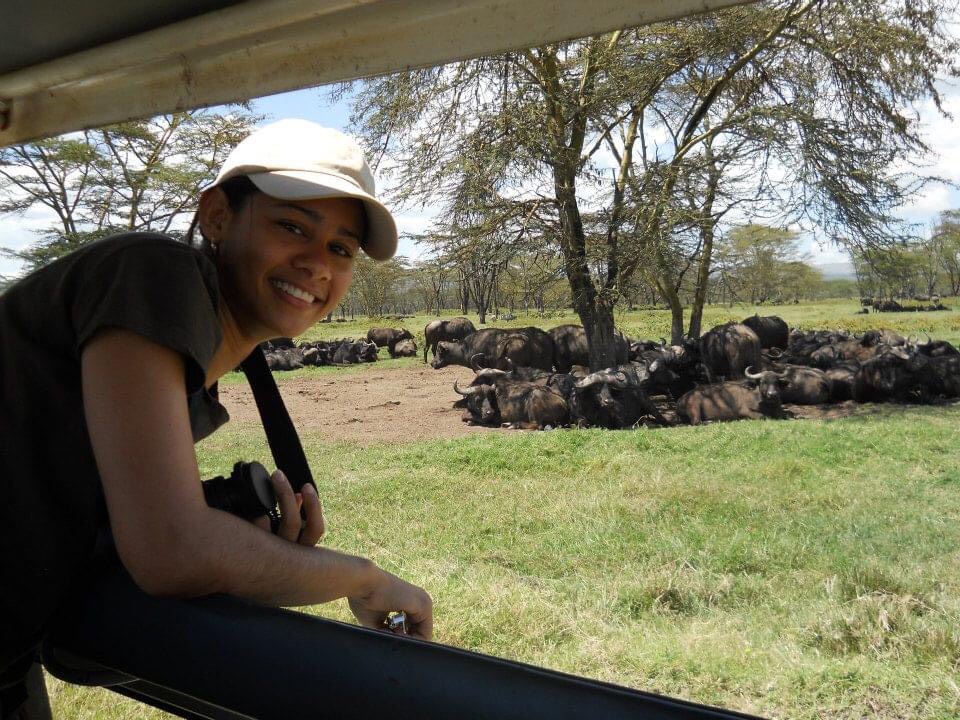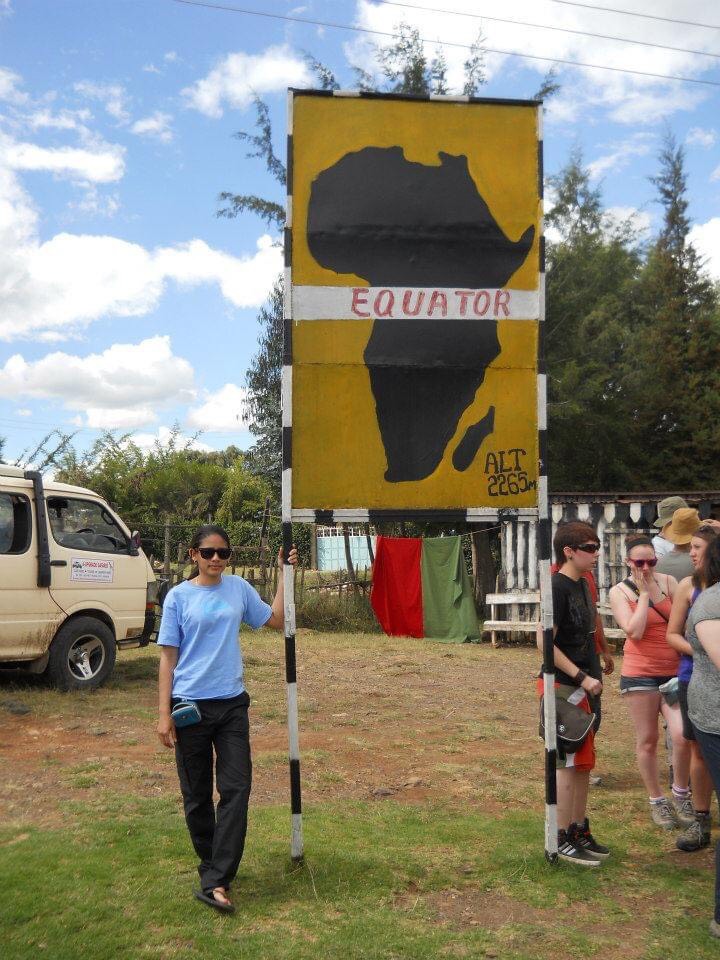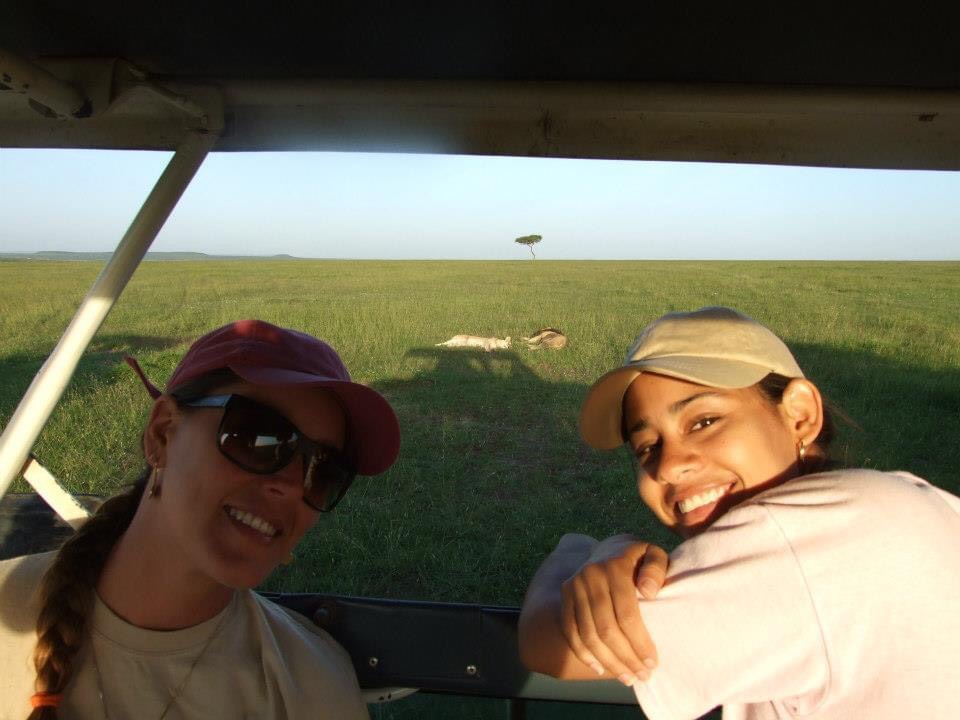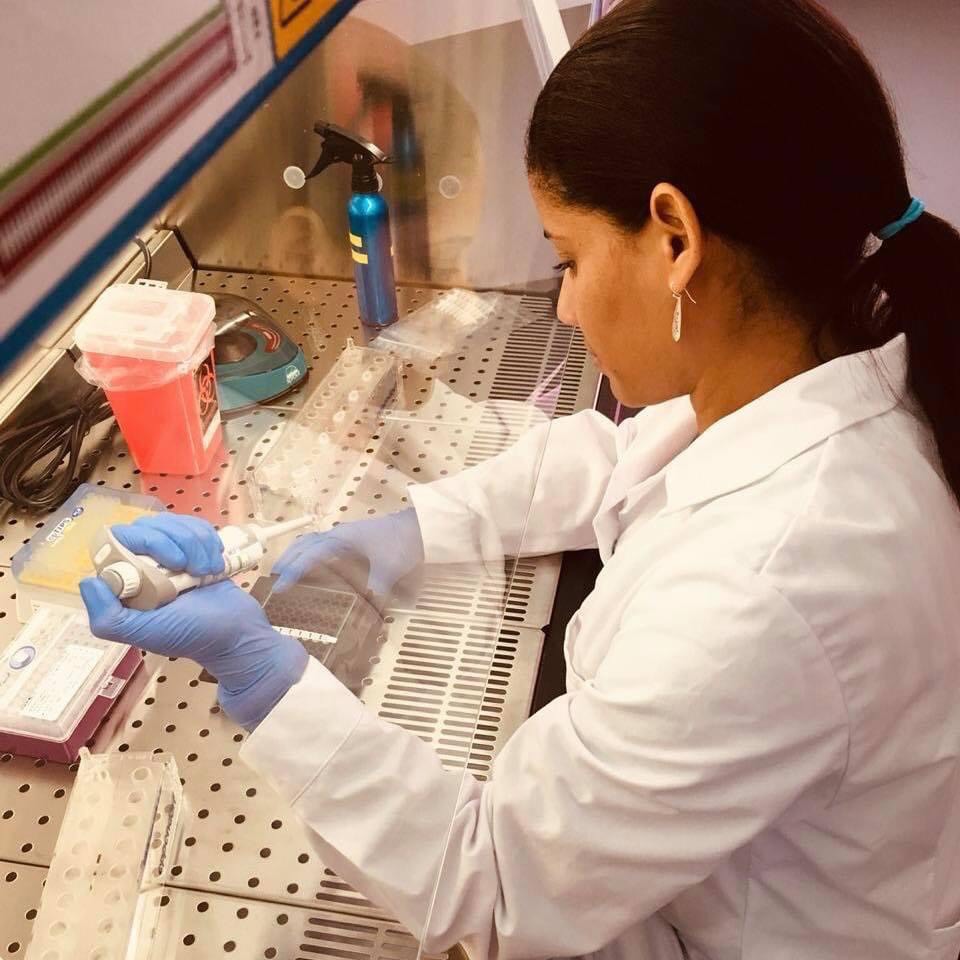We are looking back on some of our MSc graduates who have excelled in scientific research, ecology and conservation around the world since studying with us.
Today we meet Shareen who graduated from MSc Conservation and Biodiversity in 2013 and is now a Lecturer at the University of Belize.

Hi Shareen, it’s been almost a decade since you studied with us, why don’t you tell us a bit about your career in that time that led you to where you are now?
After graduating from the University of Exeter in 2013, I pursued a second master’s degree in the Watanabe Bioenvironmental Science Lab, at Osaka University, Suita, Japan. I completed the Master of Engineering programme, a course of study in the Advanced Science and Biotechnology in the Graduate School of Engineering, Osaka University, in September 2015. Thereafter, I returned to Belize and took up a full-time Lecturer position in the Science Department, Faculty of Science and Technology, University of Belize (UB), a position which I still currently hold. Before attending the University of Exeter, I was a temporary Associate Lecturer at the (UB).
 What attracted you to study your MSc at the University of Exeter, Penryn Campus?
What attracted you to study your MSc at the University of Exeter, Penryn Campus?
I chose to study the MSc in Conservation and Biodiversity at the University of Exeter Penryn Campus because the programme was designed with a heavy research component, with quality research topics offered under world-leading researchers. I was afforded with just the right amount of supervision and granted independence to thrive in my area of research. In addition, the programme offered more than the standard lecture and research components that a typical MSc programme offers. This BioScience programme, offers the highly coveted Africa field course, which not only allowed us to study conservation issues in Kenya, but also to be a part of data collection on Mammals and Bird species, that was a part of a wider study being done by the lecturers of our programme. We were then able to analyse the data in our statistics course, which made the practical sessions so much more appealing.
Can you give us an outline of your experience studying in Penryn?
My experience of studying at the Penryn Campus and living in Cornwall was a pleasant one, and possibly my best university experience yet. Most international students may gravitate towards studying abroad in large bustling cities. But coming from a relatively small, quiet, community-oriented city in Belize, and studying abroad for the first time, I found it relatively easy to accommodate to the relaxed and small campus population of the Penryn Campus, and to the easy-going life of Penryn and the nearby Falmouth town. Transportation to visit nearby towns and cities was also convenient. I also appreciated that the university sponsored trips to different beautiful areas in Cornwall including Land’s End and Eden’s Project. Although the Penryn Campus is a relatively small campus, it was pleasant to have access to the same resources that a large main campus would have. Having 24-hour access to an Msc computer lab, to the library, and to online databases with countless journals made the MSc journey so much smoother. In addition, the support systems were amazing and range from career fairs to English writing courses, to mental health support, all important for providing a balanced university life.
What are your highlights from studying at the University of Exeter?
One best aspect of the course was the dynamism and friendliness of the lecturers, and the unique but interesting ways in which they effectively delivered their courses. In addition to this, the support staff for international students was exceptional, since an English writing teacher for international students was available for our entire time at the university. The highlight of the course was the African Field Course, where we were able to learn firsthand about some of the key conservation challenges faced in Kenya, mingled with our local tour guides and drivers, and saw the “Big Five” in their natural habitat.

How do you think the MSc helped to prepare you for your career?
From my MSc Conservation and Biodiversity course, I acquired skills in molecular techniques with ecological applications that was the catalyst for studying genetic engineering after leaving UoE. I also learned effective writing techniques, effective CV writing, and grant proposal writing which are all skills that proved useful in landing my current Lecturer position at the University of Belize. The course laid the foundation for my research studies in genetic engineering and biotechnology in Japan, and prepared me for teaching biochemistry and molecular biology with ecological applications in Belize. The programme prepared me in conducting sound research, which I now apply when working with undergraduate thesis research students at the University of Belize (UB). Also, through the support classes for international students with Ms. Isabel Noon, I was able to learn effective writing techniques, a very important skill for thesis and research writing. To pass on this knowledge, I now offer such support sessions at UB for undergraduate thesis students.
 Why did you choose a career in Academia and do you have any advice for students looking to pursue a similar career?
Why did you choose a career in Academia and do you have any advice for students looking to pursue a similar career?
I chose to be a University Lecturer because I have a passion for helping students to learn Science and guiding them into their career of choice in the science field. The position also allows me to network with a large number of students from a various science background and walks of life. I would advise students who want to become a Science Lecturer to do it for the love of it, and enjoy getting to know the many people you meet.
Finally, do you have any plans for the future?
I plan to continue my career as Lecturer at the University of Belize.
Thank you Shareen!
If you want to read more profiles from MSc Biodiversity & Conservation graduates follow this link or explore our Graduate in Focus homepage to learn more about the degree programmes we have on offer!

